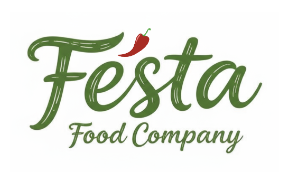Dive Brief:
- Farmstead, an online grocer that delivers local products to consumers and uses artificial intelligence for precision sourcing, has launched in San Francisco, according to a company release. The company has raised $2.8 million in seed funding, and claims that it can deliver local food from "farm to fridge" in 60 minutes.
- Using proprietary machine learning software, Farmstead can predict a customer’s habits after one order, and will source accordingly from local suppliers. The company also utilizes a series of small warehouses rather than one large facility to fill orders, and maps out “eco-friendly routes” to get orders to customers quickly and efficiently.
- Farmstead offers free delivery for customers who elect to receive weekly orders that utilize eco-friendly routes. Beyond that option, regular delivery is $3.99 and one-hour delivery is $4.99.
Dive Insight:
Farmstead calls itself a technology company rather than a grocer, underscoring the focus on its sourcing model, which uses artificial intelligence to precisely determine product sourcing based on customer orders. In an industry that’s integrating more customer data and cutting-edge software into its merchandising and supply operations, this seems particularly well-timed.
The company's dedication to food waste reduction is also a savvy move. The supermarket industry is incredibly wasteful, throwing out an estimated 10% of all food that hits store shelves, according to the U.S. Department of Agriculture. Tackling food waste will no doubt go over well with Farmstead’s eco-conscious consumers, and it also saves a lot of money.
Cutting costs this way allows Farmstead to keep its prices and delivery fees low. The startup matches local supermarket prices on all of its products, and its $4.99 fee for one-hour delivery is better than many e-commerce competitors.
There are other ways the startup is saving money, too. Like other pure-play online grocers that have come onto the scene recently, including Thrive Market, MoveButter and Brandless, Farmstead offers a limited assortment of high-demand products. The company also frequently tests products in order to keep its lineup fresh, and its app quizzes customers on their eating habits in order to better hone its supply algorithms.
With little brand recognition in a grocery market that includes many established players, including a surging Amazon, e-commerce startups are focusing on low prices and high-quality products in order to stand out. Growing demand for online shopping is also aiding growth, though research shows that many consumers still prefer to buy fresh products from their local supermarket.
Farmstead, which has delivered 15,000 orders across the Bay Area as part of its test run, faces numerous hurdles to gaining loyal customers and expanding its reach. Still, its cost competitiveness and tech savvy certainly give it an edge. If a wider market isn’t in the cards, the company could also sell or lease its proprietary technology to other retailers.







